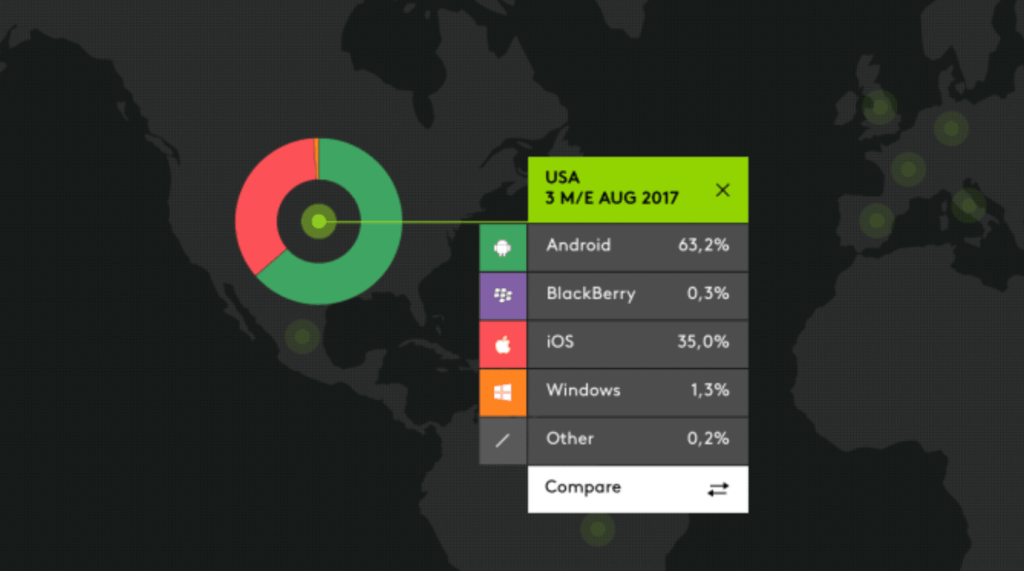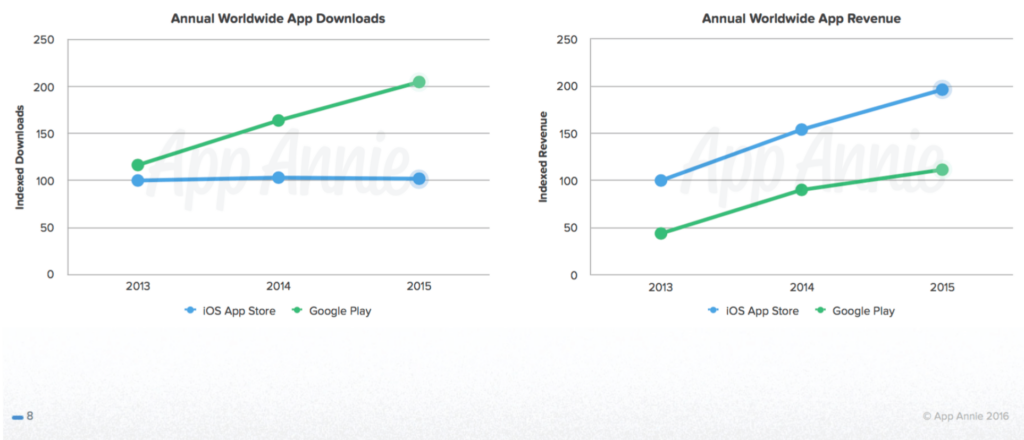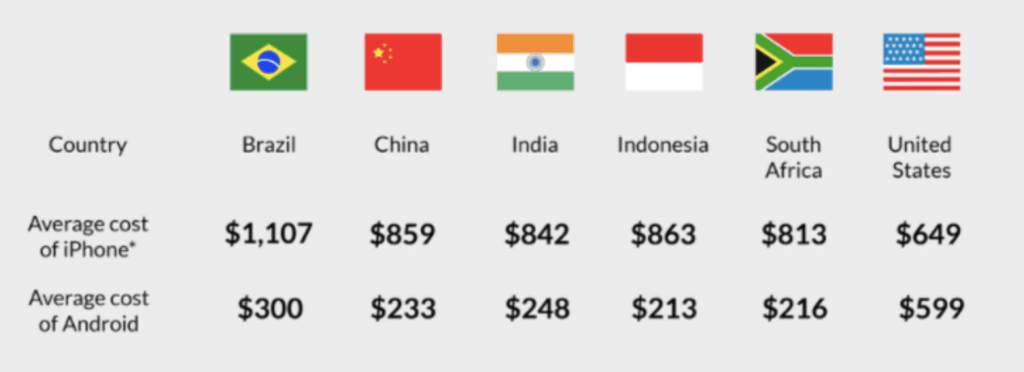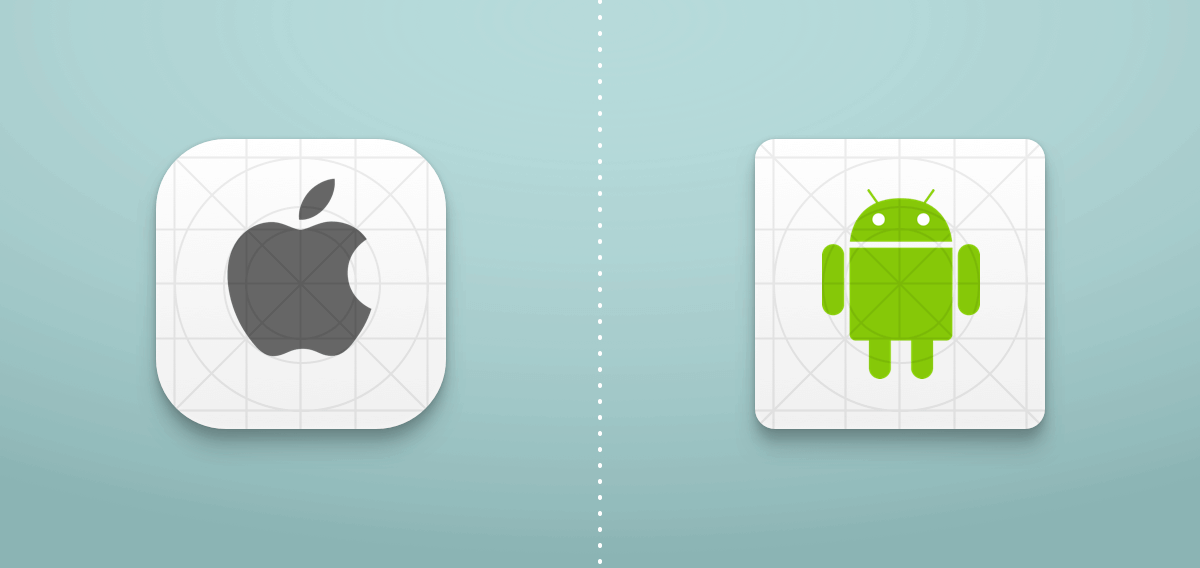iOS vs Android…
It’s a debate that’s raged on for years. Business owners, software developers, mobile app developers, marketers, university students, salespeople, doctors, book lovers, book haters…
No matter who you are or what you do, you’re either an iPhone person or an Android person.
There is no middle ground.
If one of your friends were to even suggest that you ditch your beloved iPhone for the latest Samsung Galaxy, there’s a good chance your friendship would be on the rocks. There are two tribes, and you can’t have one foot on each side.
Just look at this Samsung commercial that pokes fun at the iPhone and its users:
Think about your friends, your co-workers, and the strangers you pass on your way to work. Which side are they on? Are they Team iPhone or Team Android?
Which side do you think is winning the mobile arms race?
Well, the iPhone has been on the rise lately…
Leading up to the release of the iPhone 8 and 8 Plus, Apple saw significant growth in the U.S., jumping nearly 4 percent in overall market share. That jump has them tied with Samsung, which sounds impressive on the surface. That means Apple is close to being top dog, right?
Not quite. The reality is this:
Android is still number one, and it’s not even close.
In the U.S. alone, Android owns around 63 percent of the market, while Apple’s sitting at just 35%.

For every iPhone user you come across, there are two Android users comfortably laughing at those who swear by Siri and iOS. That said, you, wonderful startup founder or developer that you are, shouldn’t be asking which device your friends think is better for them. The question you should be asking is:
Is an iPhone or Android app best for you and your startup?
On the surface, you might think the answer is obvious.
Android market share > iOS market share, therefore Android wins.
Of course, the equation isn’t quite so simple. It’s not just about the total number of users; there are a handful of other variables that need to be considered here. Before we dig into what exactly those variables are, let’s take the question one step further:
Should you invest in both iPhone and Android, or specialize in one?
In most cases, the simple answer here is both, but only if you have the resources to pull it off.
With iOS development and Android development, if you decide to create both, you’re tapping into both markets and granting nearly 99 percent of all smartphone users access to your app. You’re able to reap the benefits of both sides.
Unfortunately, you only have so many developers available, and asking them to shift their focus away from your core product may not be possible, or the right call for your business right now.
So even if you eventually plan to release an app for both operating systems, you’ll need to decide which path to take first, and that brings us back to the original question…
Which device is best for you and your business?
Before you dive head-first into one market or the other, consider these three things:
1. iPhone Apps Generate The Most Revenue Through In-App Purchases
While their market share may be lower, mobile apps in the Apple App Store are generating more revenue than Android apps through in-app purchases. In fact, game apps alone generated over $1 billion in revenue in December 2015.
This means iPhone users are more likely than Android users to make an in-app purchase or upgrade to a premium subscription.

While the number of Android apps on the market is steadily increasing, the revenue they generate is still lagging behind the apps on Apple’s App Store—as of 2016, Apple apps were generating 75% more revenue than apps on the Google Play Store.
2. Emerging Markets Are Focusing On Android vs iPhone
When it comes to emerging markets in Asia, Africa, and South America, Android is sitting comfortably on top, and it has a lot to do with price and accessibility.
As of late 2015, Android’s market share in Brazil and India was a whopping 90%.
Android devices are simply more affordable than iPhones in these countries.
In many emerging markets, an iPhone is nearly four times as expensive as an Android device. When you consider the average income in these countries, it’s not difficult to see why their residents flock to Android.

Considering how loyal smartphone owners typically become, this early market dominance for Android will be difficult for Apple to compete with.
3. Developing An iPhone App Is More Consistent
If you compare Android development to iOS development, there is a clear leader in terms of compatibility and consistency.
Because Android is an open-source project, it can be tricky to ensure your app is compatible across all devices. With iOS, that compatibility is far more consistent—when you build something for one iOS device, it typically works across all devices.
This factor alone will save you a ton of headaches (not to mention time) during the development process.
Now Over To You…
So our question is: iPhone or Android?
All things considered, it’s not an easy decision. If you’re still struggling to pick sides, we’d love to help you figure out what’s best for you and your business.
Get in touch with us today and we’ll talk you through which operating system best fits your needs.
Are you Team iPhone or Team Android? Leave a comment below to tell us which side you’re on and why. Hot takes are welcome.



